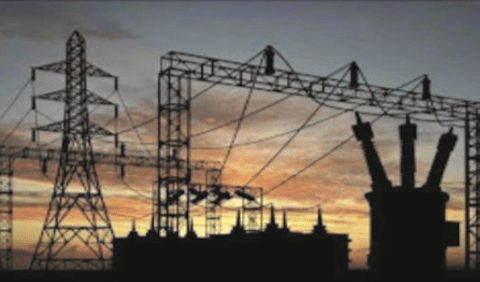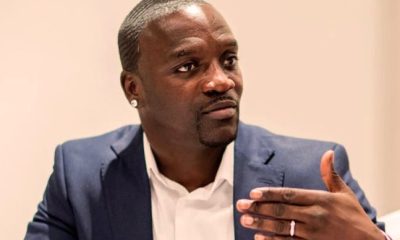General
The NEPA in PHCN: How Nigerians Pay for Darkness (Part 1)

Introduction
This column has since 2018, week after week, discussed constitutionalism, democracy, human rights, rule of law and good governance. They are all inter-wined. It is nigh impossible to discuss good governance, without discussing those components that energise good governance. One of the attributes of good governance is the provision of infrastructure, social and economic amenities. One of such amenities that is critical to democracy, is electricity. Does Nigeria have accessible and affordable electricity, like South Africa, for example? I think not. We shall from today, discuss this critical amenity whose absence has stunted Nigeria’s growth, and besmeared her democratic credentials with the paint brush of shame, odium and obloquy.
PHCN or NEPA
The Power Holding Company of Nigeria (PHCN), formerly known as National Electric Power Authority (NEPA), is an organisation in charge of electricity in Nigeria. The electricity sector in Nigeria currently generates, transmits and distributes megawatts of electric power, that is significantly lower than Nigeria’s required household and industrial needs. In 2012, the industry had laboured to distribute a mere 5,000 megawatts, very much less than the 40,000 megawatts needed to sustain the basic needs of the population.
How Much Electricity Do We Have?
Nigeria is endowed with large oil, gas, hydro and solar resources, and it has the potential to generate 12,522 MW of electric power from existing plants. This is the estimated quantum of electricity that Nigeria ought to be producing daily with all our numerous endowments. Unfortunately, on most days, we are only able to dispatch approximately 4,000 MW , which is insufficient for a country of over 215 million people (by UN projection), a country that boasts of numerous businesses and infrastructure.
Many Sources of Power in Nigeria
In Nigeria, there are four major sources through which power is provided: coal, hydro, oil (petroleum) and natural gas. Among these, the whole energy sector is dependent only on petroleum, a factor that slows down the production of electricity and development in alternative forms of energy. 45% of the Nigerian population, is currently connected to the energy National grid. However, the grid only supplies energy about 85% of the time; and is virtually nonexistent in many parts of Nigeria.
After the privatisation of electricity in Nigeria, the transmission and supply of power in Nigeria were divided amongst several companies with different functions. The Generating Companies (GenCos) are those in charge of the actual generation of the electricity; transmission and distribution are left to the Transmission Company of Nigeria (TCN), and the Distribution Companies (DisCos), respectively. The GenCos are tasked with transforming hydro and gas power, into electricity power.
History of Electricity Generation in Nigeria
Electricity was first generated in Nigeria in 1866, when two generating sets were installed in the Colony of Lagos. However, the first electric utility company in Nigeria known as the Nigerian Electricity Supply Company (NESC), was established in 1929. In 1951, the Nigerian Government by an Act of Parliament, established the Electricity Corporation of Nigeria (ECN), to regulate and operate power supply in Nigeria.
The Evolution and Revolution
As part of the evolution in the Power Industry in Nigeria, the Federal Government by Decree No. 24 of 1972, created the National Electric Power Authority (NEPA). This was consequent upon the merger of the Electricity Corporation of Nigeria and Niger Dams Authority (NDA). In September, 1990, the partial commercialisation came into being, with the appointment of a Managing Director/Chief Executive to superintend over the Corporation. Also, the Authority was divided into four autonomous divisions, namely: Generation and Transmission; Distribution and Sales; Engineering; Finance and Administration. Each division was headed by an Executive Director.
- National Control Centre (NCC), Osogbo.
- Three Regional Control Centres (RCCs) at Shiroro, Ikeja West and Benin. With proposed control centres at Kano, Alaoji and Gombe.
- Eight Regional Operations Coordinating units (ROCs) at Benin, Enugu, Port-Harcourt, Bauchi, Kaduna, Shiroro, Osogbo and Lagos – several Area Control Centres covering 330kV and 132kV substations, which fall under the supervision of the ROCs.
The mission statement was exercising grid control to maintain an efficient, coordinated and economic supply of electricity in accordance with the grid code and operational procedures. The vision was to operate the grid system efficiently, to ensure open access, safe, reliable and economic electricity supply
In 2005, the Electric Power Sector Reform (EPSR) Act was enacted and the Nigerian Electricity Regulatory Commission (NERC) was established as an independent regulatory body for the electricity industry in Nigeria. In addition, the Power Holding Company of Nigeria (PHCN) was formed as a transitional corporation that comprises of the 18 successor companies (6 generating companies, 11 distribution companies and transmission company), all created from NEPA.
In 2O10, the Nigerian Bulk Electricity Trading Plc (NBET) was established as a credible off-taker of electric power from generation companies. By November 2013, the privatisation of all generation and 10 distribution companies was completed, with the Federal Government retaining the ownership of the transmission company. The privatisation of the 11th distribution company, was completed in November 2014.
Nigeria, known to have Africa’s largest economy, has one of the world’s worst power sectors, producing an average of 5,000 megawatts of electricity for a population of about 215 million since the establishment of its electricity institutions. According to World Bank Report, over 80 million people do not have access to the national grid; and power shortages cost the country $29 billion per annum. By comparison, South Africa, the continent’s second biggest economy, generates about 55,000 megawatts for a population of only about 58 million. Successive governments have tried, but failed to reform Nigeria’s energy sector. The main problems are decaying infrastructure, low investment, debts, and poor management. There are also “operational inefficiencies”, so said PricewaterhouseCoopers (PwC), in a 2020 report.
The Operation of the Power Sector
Transmission
The Transmission Company of Nigeria (TCN), manages the electricity transmission network in the country. It is one of the 18 companies that was unbundled from the defunct Power Holding Company of Nigeria (PHCN) in April 2004, and is a product of a merger of the transmission and system operations parts of PHCN. It was incorporated in November 2005, and issued a transmission licence on July 1, 2006. The TCN is presently fully owned and operated by the Government, and as part of the reform programme of the Government, it is to be reorganised and restructured to improve its reliability and expand its capacity.
TCN’s licensed activities include electricity transmission, system operation and electricity trading. It is responsible for evacuating electric power generated by the electricity generating companies (GenCos) and wheeling it to distribution companies (DisCos). It provides the vital transmission infrastructure between the GenCos and the DisCos’ Feeder Sub-stations. TCN consists of three operational departments:
1. Transmission Service Provider (TSP)
The TSP oversees the development and maintenance of the transmission infrastructure. It is responsible for the national inter-connected transmission system of substations and power lines, and providing open access transmission services. Its role is to maintain the physical infrastructure that make up the transmission grid, and expand it to new areas.
2. System Operations (SO)
The SO manages the flow of electricity throughout the power system, from generation to distribution companies. It operates the Grid Code for the Nigerian Electricity Supply Industry (NESI). The SO has the responsibility for ensuring that the transmission grid lines are reliable, and maintaining the technical stability of the grid through its operations of planning, dispatch, and control of the electricity on the grid.
3. Market Operations (MO)
The MO administers the market rules of the NESI. It is responsible for the administration of the Electricity Market, and promoting efficiency in the market. Specifically, the roles of MO include implementing and administering the Nigerian Electricity Market Rules; drafting and implementing the Market Procedures; administration of the Commercial Metering System, by ensuring that each trading point has adequate metering systems in place; administration of the Market Settlement System; Administration of the Payment System and commercial arrangement of the energy market, including Ancillary Services; supervising Electricity Market Participants’ compliance with and enforcing the Market Rules and the Grid Code. The functions also encompass periodic reporting on the implementation of the Market Rules; capacity building of market of Participants on the Market Rules and Procedures and Trading Arrangements, finally, at the long-term stage of the electricity market, of the MO is to ensuring and promoted competition among market participants.

-

 Technology2 years ago
Technology2 years agoVoIP Number: Everything You Need To Know
-

 Music5 years ago
Music5 years ago[Music] Gnash Ft Olivia O’Brien – I Hate you, I Love you
-

 Music2 years ago
Music2 years ago[INSTRUMENTAL] John Legend – All Of Me
-

 Music2 years ago
Music2 years agoAlan Walker – Faded [INSTRUMENTAL]
-

 Music2 years ago
Music2 years ago[Video] 21 Savage ft. Offset & Metro Boomin – Rap Saved Me
-

 Music2 years ago
Music2 years ago[Instrumental] Wiz Khalifa – See You Again ft. Charlie Puth
-

 ANE Stories6 years ago
ANE Stories6 years ago[STORY] AMAKA THE LESBIAN (Complete Episodes)
-

 Music2 years ago
Music2 years ago[Music] Akon – Sorry Blame It On Me























